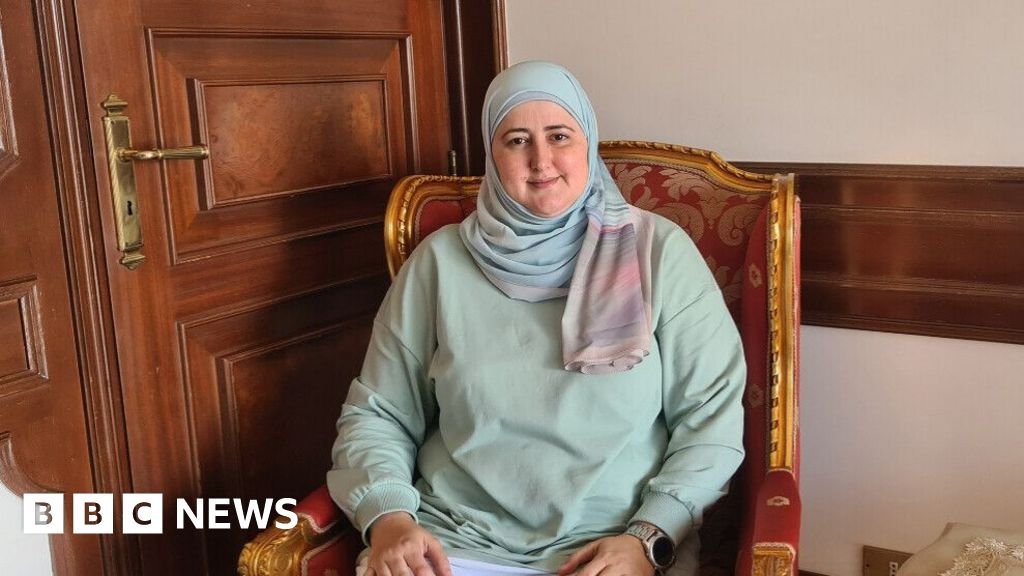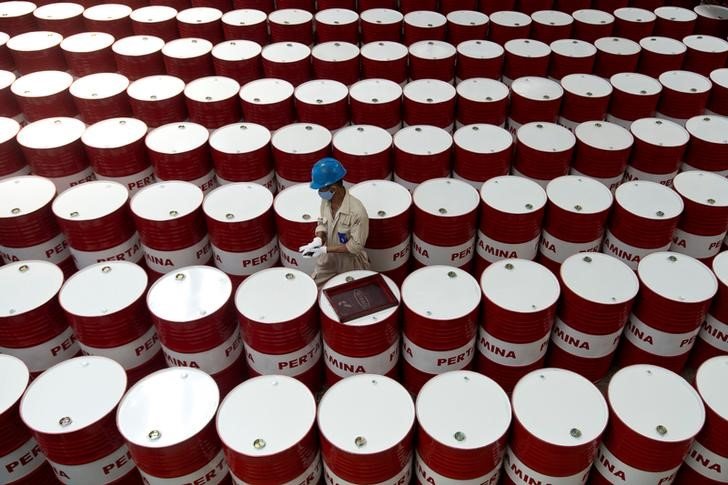
The suffering of the Palestinian people, which began with the Nakba and the creation of the State of Israel in 1948, has reached new depths in the past 15 months. Israel continues to carry out genocide in Gaza, killing more than 46,000 Palestinians and injuring more than 110,000, mostly women and children. More than 10,000 people are missing, arbitrarily detained or buried under the rubble of destroyed homes. Israel’s relentless attacks have spared no homes, schools or even hospitals in the besieged strip. Hundreds of thousands of survivors were driven from their homes and moved into makeshift tents in so-called “safe zones”, facing indiscriminate airstrikes, daily massacres, disease outbreaks, starvation and harsh winter conditions, and their suffering never ended. Palestinians in the occupied West Bank are also under attack by Israeli forces and lack the most basic rights and freedoms.
Palestinians documented the atrocities committed by Israel against their people and shared them with the world in real time for all to see. South Africa filed a genocide lawsuit against Israel at the World Court, with support from a number of countries including Mexico, Brazil and Türkiye. The ICC has also taken action against Israel, issuing arrest warrants for Israeli Prime Minister Benjamin Netanyahu and his former Defense Minister Yoav Galante for alleged war crimes and crimes against humanity. The global public has also shown unequivocal support for the Palestinians, with tens of thousands of pro-Palestinian protests, vigils and sit-ins held around the world since the genocide began in October 2023, attracting support from millions of people from all walks of life.
Yet despite this, Israel appears to be able to continue to commit crimes with public impunity. This is because its Western backers and financiers, especially the United States, turn a blind eye to all of Israel’s atrocities and refuse to acknowledge – let alone punish – its blatant violations of international law.
Washington in particular, as Israel’s main supplier of weapons, bombs and other military equipment, has taken no action over the past 15 months to help end the genocide. Instead, it goes to great lengths to shield Israel from accountability. For example, it has used its veto power four times, most recently on November 20, to prevent the UN Security Council from passing a resolution calling for a ceasefire. It also voted against a UN General Assembly resolution, backed by 154 member states, calling on Israel to immediately end its war in Gaza. It also seeks to punish the International Criminal Court for issuing arrest warrants against Israeli leaders, with the House of Representatives passing a bill to sanction the court.
Therefore, it seems that as long as the United States continues to provide military, political, and financial support to Israel, Palestinian supporters will be unable to end the suffering of the Palestinian people or ensure that their basic human rights are respected.
Thankfully, however, the past 14 months have not been solely filled with loss and disappointment. Palestinian supporters also achieved important political, legal and electoral victories during this period. Most importantly, despite the world’s inability to end Israel’s genocide and lawless occupation, the Palestinian cause today has more support than ever in the global public square. Israel is becoming a pariah. This is important.
Indeed, even in the United States, where politicians appear committed to protecting Israel at all costs, people regularly take to the streets to demand an end to the brutal war against the people of Gaza. American universities from coast to coast have been taken over by Gaza solidarity camps. Although most of these protests were suppressed with force and many participants were severely punished, they still succeeded in showing the world that the American people did not support genocide. They also focused the attention of the American people on their country’s funding of Gaza and helped shift public opinion against the genocide.
In Western Europe, another traditional base of support for Israel, Palestine is also beginning to receive unprecedented levels of official and grassroots support.
Of course, Europe’s reliance on the United States and Israel’s historical ties to most European countries, as well as extensive lobbying investments, means that official support for Israel’s war on the continent remains strong.
For example, the German government has unswervingly supported Israel from the very beginning of the genocide and still supports and defends all actions of the Netanyahu government to this day.
But pro-Palestinian and anti-genocide voices have gained significant influence in European politics, law, media, entertainment and economics, as well as among trade unions, academia and students, gradually pushing some European governments and major institutions to support international law and international law. Palestinian human rights.
In the first year of Israel’s genocidal war on Gaza, more than 26,000 demonstrations and other events in support of Palestinian rights took place in 619 cities in 20 European countries, according to data collected by the European Palestine Information Center (EPAL).
In response to growing European public calls for Palestinian justice, European governments have slowly begun to express support for the fight. Belgium, Ireland and Spain officially side with South Africa in the genocide case against Israel. Spain and Ireland also recognized the Palestinian state, bringing the number of EU countries that recognize it to 10. French President Emmanuel Macron calls for arms exports stop The UK has pause Some licenses. Ireland’s condemnation of the genocide is so strong that Israel recently decided to close its embassy in the country.
In terms of electoral politics, despite the overall rise of the right and the apparent success of right-wing parties in previous elections, Palestinian supporters have also made significant gains in several European countries over the past year.
For example, France’s national elections in mid-2024 were won by the left-wing France Informed party, whose leader Jean-Luc Mélenchon played a key role in organizing pro-Palestinian demonstrations in the country. Pro-Palestinian parties also won 11 seats in the European Parliament.
Pro-Palestinian voices also made important gains in the European Parliament elections. For example, the Swedish Left Party won two seats due to its active advocacy of the Palestinian issue and strong support from Sweden’s Palestinian, Arab and Muslim minorities. Denmark also elected several representatives who vocally support Palestine.
In Britain, weekly demonstrations calling for a ceasefire in Gaza and an end to the occupation have attracted tens of thousands of people, and five pro-Palestinian candidates, including former Labor leader Jeremy Corbyn, won seats in last year’s parliamentary election. The MPs later formed a parliamentary group called the Independent Alliance and began pressuring Keir Starmer’s Labor government to support a ceasefire in Gaza and condemn Israel’s war crimes.
In Austria, pro-Palestinian candidates competed in September’s national elections under the name “Gaza List: Voices Against Genocide” after gaining enough support in seven of nine states. Not only did they succeed in drawing attention to the Gaza genocide in the Austrian political dialogue, but they actually garnered nearly 20,000 votes in the election, demonstrating the growing number of pro-Palestinian voices in this traditionally pro-Israel country. Come bigger.
Last year, Palestinian advocates for justice also scored important legal victories.
In Italy, supporters of Palestinian rights have won a case at the Supreme Court of Appeal against Italian state television “Rai” for mistakenly referring to Jerusalem as the capital of Israel in a press release. The judge ruled that Rai must publicly correct his error in a subsequent proclamation, saying Jerusalem was not Israel’s capital.
Meanwhile, anti-genocide activists filed a lawsuit against the Dutch government, demanding it stop arms exports to Israel in light of Israel’s behavior in Gaza. The court proceedings were broadcast live on Dutch national television, raising public awareness in the Netherlands of the country’s role in promoting Israel’s genocidal war.
Another notable legal action in support of Palestine is the case filed last September with the International Criminal Court and several local courts by the Hind Rajab Foundation, established in Belgium, against Israeli soldiers involved in the Gaza genocide.
The foundation, named after the six-year-old Palestinian girl who was killed by Israeli tank fire in Gaza while trapped in a car filled with the bodies of relatives, sent a letter containing a report to the ICC. A list of the names of thousands of Israeli soldiers suspected of involvement in war crimes in the besieged Gaza Strip. The foundation collected evidence against the accused Israeli soldiers through various means, including their personal social media pages, where they bragged about crimes committed against Palestinian civilians in Gaza.
The foundation has also been tracking the movements of Israeli soldiers abroad and filing lawsuits in local courts. It identifies and lodges complaints against suspected war criminals holidaying in Brazil, Sri Lanka, Thailand, Belgium, the Netherlands, Serbia, Ireland, Cyprus and, most recently, Sweden. The foundation’s actions prompted Israel to instruct its soldiers to exercise caution when planning vacations abroad and cemented its status as an international pariah.
Meanwhile, the Boycott, Divestment, Sanctions (BDS) movement has also had significant success in reducing support for Israel over the past year.
Several of Europe’s largest financial firms have reduced their ties to Israeli companies or companies with ties to the country amid pressure from activists and governments to wind down Israeli companies, according to a Reuters analysis published in November. Gaza war. Total foreign direct investment in Israel fell 29% in 2023 to its lowest level since 2016, according to the United Nations Trade and Development Organization.
In short, while the international community has not yet succeeded in stopping Israel’s crimes, the tireless advocacy of activists around the world has brought us closer than ever to justice for the Palestinian people. Israel’s genocide in Gaza, carried out in plain sight and documented in detail, has dramatically changed public perceptions of the Israeli-Palestinian conflict around the world. Even if the United States does not appear to be abandoning its support for settler colonies, international opinion is rapidly shifting in favor of Palestine.
The tide is undoubtedly changing, but the battle is far from over. Palestinians and their supporters must continue to expose the truth about Israeli war crimes, illegal occupation and ethnic cleansing until Palestine is free and Israel is held accountable for the many crimes it has committed and continues to commit against its long-suffering people offense. Palestinians.
The views expressed in this article are the author’s own and do not necessarily reflect the editorial position of Al Jazeera.







